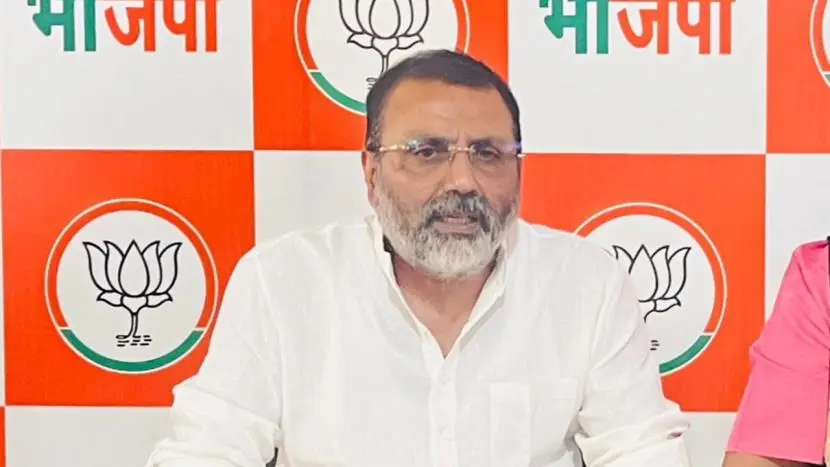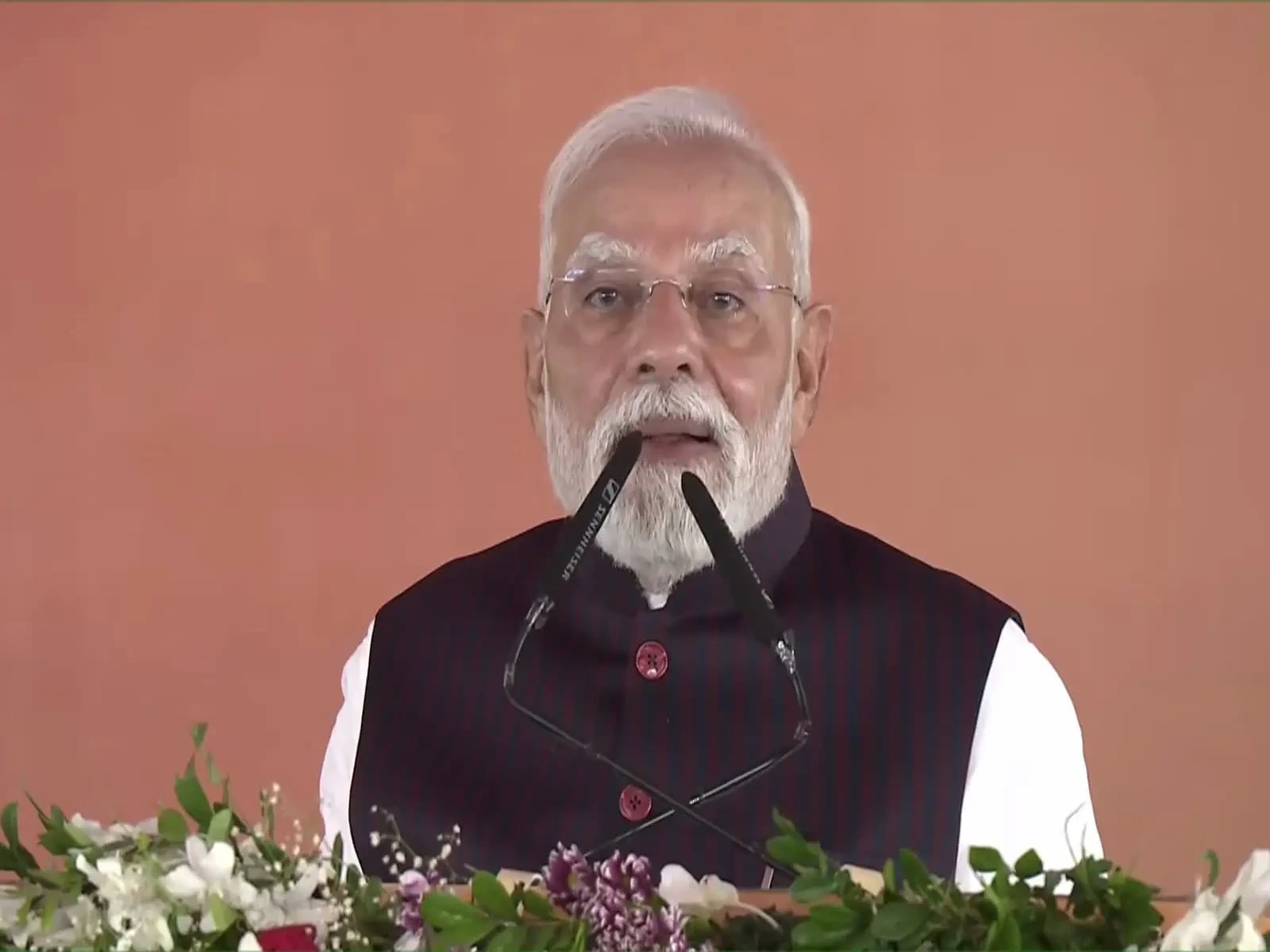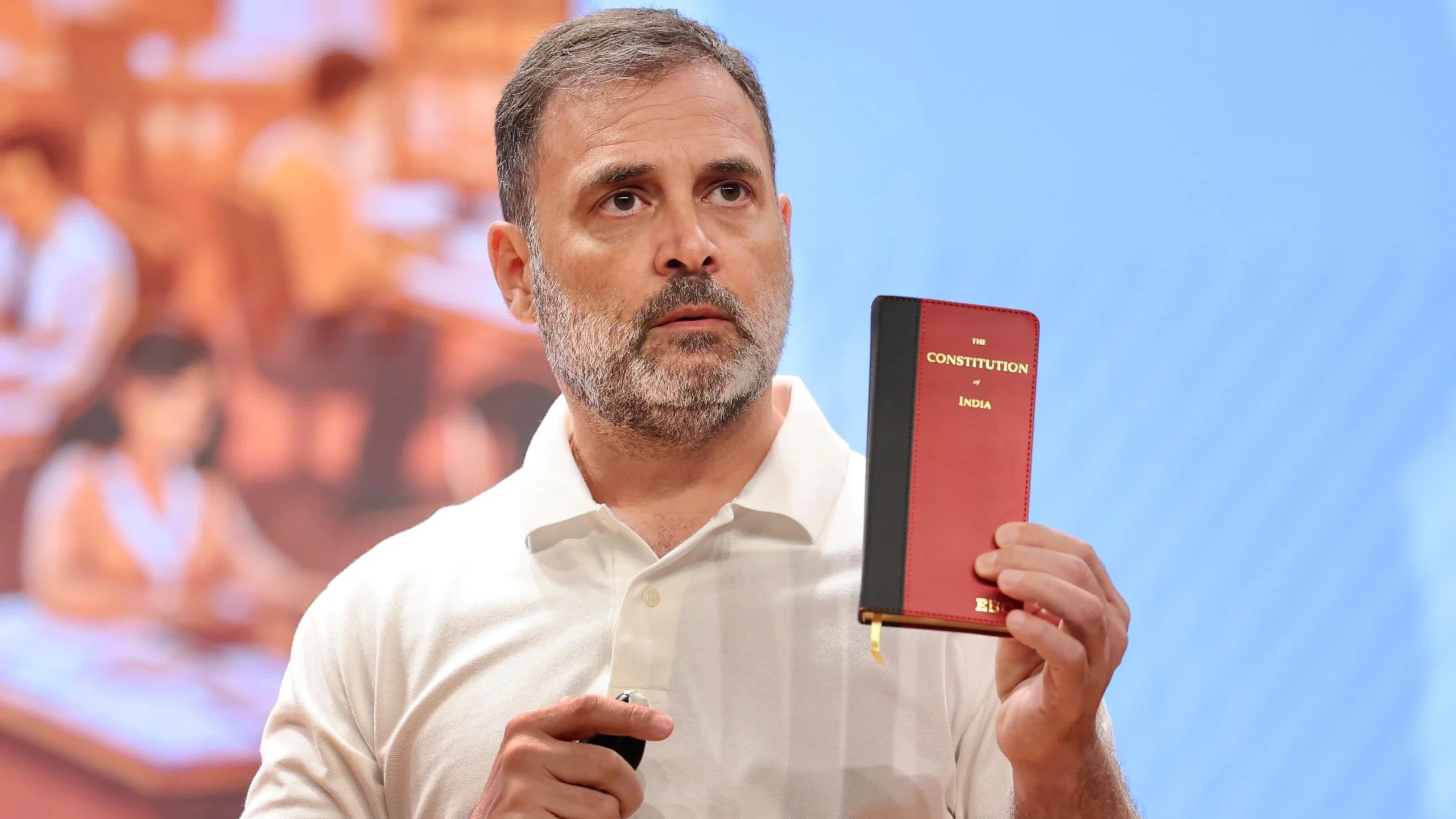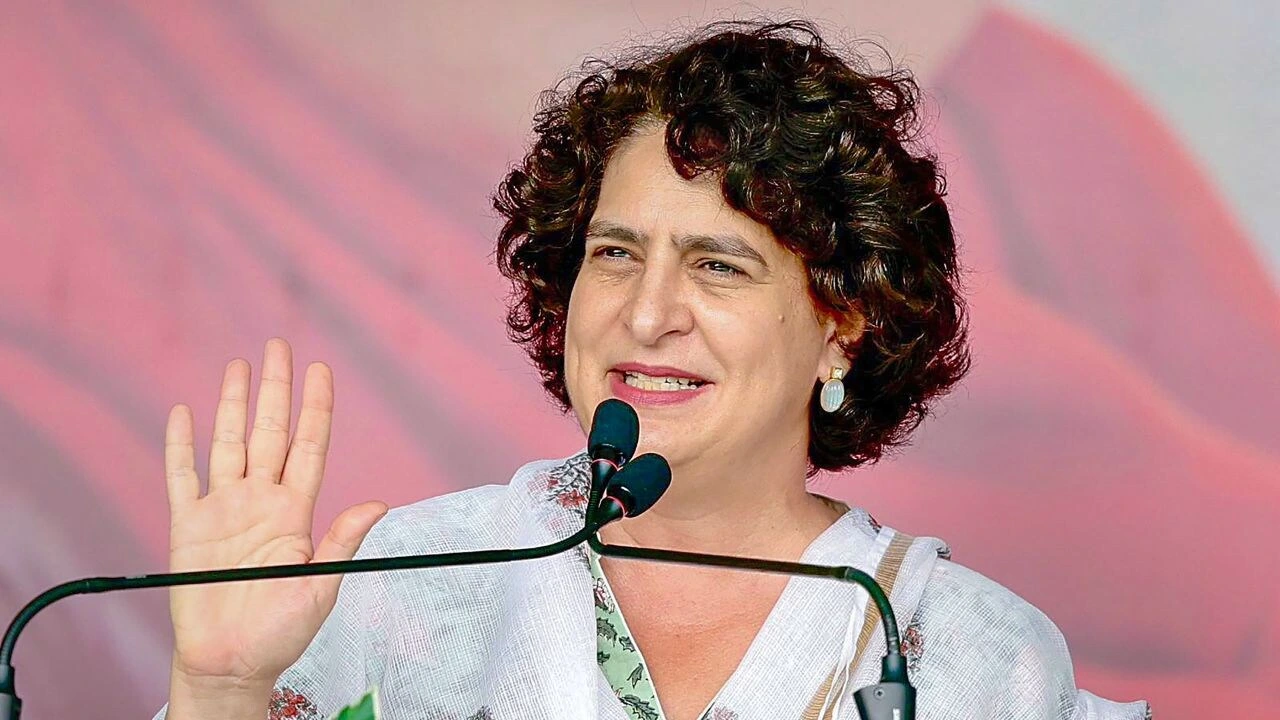12-JUN-2025, 01:16 PM
In a sharp political rebuttal during a session of the Lok Sabha, Bharatiya Janata Party (BJP) Member of Parliament Nishikant Dubey took a direct jab at Congress leader and newly-appointed Leader of Opposition, Rahul Gandhi. Referring to Gandhi’s remarks on India-US relations and the Hyde Act, Nishikant Dubey suggested that the Congress leader lacked a clear understanding of key legislative frameworks.
Dubey’s statement — “Rahul baba, please read the Hyde Act” — has since gone viral, triggering widespread debate both inside and outside Parliament. The remark not only sparked reactions from Congress benches but also fueled a broader conversation on India’s foreign policy and the need for informed discourse in the country’s top law-making body.
Nishikant Dubey : The Context of the Debate and the Hyde Act Reference
Why Nishikant Dubey : Targeted Rahul Gandhi
The confrontation unfolded during a discussion on India-US bilateral ties, where Rahul Gandhi referred to the Hyde Act, suggesting that the Indo-US nuclear deal signed in 2008 compromised India’s sovereignty. In response, Nishikant Dubey rose to counter Gandhi’s argument, asserting that the Hyde Act only applies to the internal law of the United States and does not bind India in any way.
Dubey’s pointed recommendation that Gandhi should “read the Hyde Act before making public comments” was a direct hit at what he characterized as misinformed criticism. His remarks underscored a larger narrative pushed by the BJP: that opposition leaders must engage in parliamentary debates with greater depth and understanding.
Nishikant Dubey : What Is the Hyde Act and Why It Matters
The Hyde Act, formally known as the Henry J. Hyde United States–India Peaceful Atomic Energy Cooperation Act of 2006, was a key legal step in enabling civilian nuclear trade between India and the United States. It laid the groundwork for the historic Indo-US nuclear deal signed in 2008 under Prime Minister Manmohan Singh’s leadership.
Critics have argued that the act includes clauses that may limit India’s strategic autonomy, while supporters, including many Indian diplomats, have emphasized its symbolic importance in strengthening global non-proliferation norms and US-India relations.
Nishikant Dubey stressed in Parliament that the act is “non-binding on India” and that India has maintained complete control over its nuclear assets and foreign policy decisions since the agreement.
Nishikant Dubey : A Consistent Critic of Rahul Gandhi
Nishikant Dubey : The BJP MP’s Track Record of Taking On the Congress Leadership
Nishikant Dubey, known for his forthright and aggressive speaking style, has been one of the most vocal BJP parliamentarians in countering the Congress party, particularly Rahul Gandhi. His latest remark is not an isolated incident but part of a broader political strategy aimed at undermining the credibility of the opposition.
A four-time MP from Godda, Jharkhand, Nishikant Dubey has regularly accused Congress leaders of indulging in “superficial” political rhetoric and “misleading” the public. His interventions in Parliament are often fiery, and he is seen as one of the BJP’s go-to leaders when it comes to defending the government’s stance during controversial debates.
Social Media Erupts After Nishikant Dubey’s Remark
Following his “read the Hyde Act” jibe, Nishikant Dubey quickly trended on social media, with users both supporting and mocking his sharp attack. BJP supporters lauded him for holding the opposition accountable, while Congress leaders dismissed his remarks as a political stunt.
Hashtags like #NishikantDubey, #HydeAct, and #RahulGandhi started trending within hours, turning a parliamentary exchange into a national talking point.
Political Ramifications of the Exchange
What This Means for Parliamentary Discourse
The sharp exchanges between Nishikant Dubey and Rahul Gandhi have reignited debates on the quality of discourse in India’s Parliament. While political confrontations are a routine part of democratic functioning, there is growing concern among observers that such debates often lack substance and drift into personal attacks.
Dubey’s remark, though rooted in a policy disagreement, also highlights the need for politicians across the aisle to thoroughly understand international treaties and legislative frameworks before drawing conclusions.
Impact on Rahul Gandhi’s New Role as LoP
Rahul Gandhi’s elevation as Leader of Opposition (LoP) comes with increased responsibility and scrutiny. His Hyde Act remarks have drawn criticism not just from Nishikant Dubey, but from several foreign policy experts as well, who argue that the statement may reflect a superficial understanding of international agreements.
In this light, Nishikant Dubey’s rebuke is being seen as an early test of Gandhi’s preparedness for the crucial role he now occupies in the Indian democratic system.
Media and Expert Reactions to the Parliament Clash
Analysts Weigh In on Nishikant Dubey’s Hyde Act Comments
Several political analysts have pointed out that Nishikant Dubey’s intervention was technically accurate — the Hyde Act indeed governs the obligations of the US, not India. “While political criticism is fair game, leaders must base their arguments on factually correct premises,” noted political commentator Shekhar Gupta.
Others see the spat as a reflection of a deeper divide in Indian politics — one where symbolism and political rhetoric often overshadow substantive policy discussion.
Public Perception and Voter Sentiment
Public response to the exchange has been polarized. While BJP supporters cheered Nishikant Dubey for “exposing ignorance” on the opposition benches, others accused him of belittling genuine concerns raised by Rahul Gandhi about strategic autonomy.
Regardless of which side people support, the episode has succeeded in elevating the importance of accurate legal and diplomatic knowledge in public discourse.
Conclusion: Nishikant Dubey’s Comment Reflects the Stakes of Political Leadership
The latest episode featuring Nishikant Dubey and Rahul Gandhi is more than just a war of words — it reveals the challenges of informed policymaking in an era where political narratives are shaped by sound bites and viral moments. As India navigates complex international partnerships, the burden on its lawmakers to be accurate, articulate, and well-versed in foreign policy has never been higher.
Whether one agrees with Nishikant Dubey or not, his pointed remarks have sparked an important conversation about the quality of political debate in Parliament. As the Leader of Opposition settles into his new role, and as BJP MPs like Dubey continue to challenge him, the tone of future debates will likely shape public trust in India’s democratic institutions.
Source : ANI





